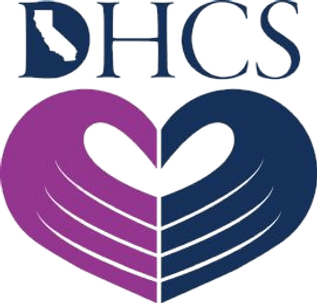Figuring out the best ADHD medication for adults can feel confusing. With so many options, it’s important to know which medications work best and how they can help with focus, organization, and self-control. The right medication depends on your symptoms, lifestyle, and health needs.
So, what are the different ADHD medications for adults, how do they work, and what should you consider when choosing what’s right for you?

What Is ADHD?
ADHD (Attention-Deficit/Hyperactivity Disorder) is a condition that affects how your brain works. It makes it harder for you to focus, stay still, or control impulses. It’s not just about being energetic or forgetful – your brain processes things differently.
A study in Neuropsychiatric Disease and Treatment found that ADHD is one of the most common developmental disorders. It affects about 5%–10% of children and 1%–6% of adults. A large U.S. study reported that 4.4% of adults have significant ADHD symptoms, showing that ADHD is common at all ages.
Signs of ADHD
ADHD signs and symptoms start before age 12 and continue into adulthood. There’s no single test for diagnosis. Doctors may:
- Do a physical exam to rule out other causes
- Ask about your medical history and symptoms
- Use ADHD rating scales or psychological tests to assess symptoms
If you have ADHD, you might:
- Get distracted easily and forget things.
- Have trouble following instructions or finishing tasks.
- Feel restless and need to move around a lot.
- Speak or act without thinking first.
- Struggle to stay organized.
Types of ADHD
There are three main types:
- Inattentive type – You daydream a lot, lose things, and struggle to focus.
- Hyperactive-impulsive type – You fidget, interrupt, or feel like you’re always “on the go.”
- Combined type – You have both inattentive and hyperactive symptoms.
What Causes ADHD?
ADHD isn’t your fault. It’s caused by differences in how the brain develops and functions, often influenced by genetic factors passed down through families. However, research is ongoing, and scientists are still exploring the exact causes of ADHD. In addition to genetic predisposition, factors like low birth weight, early brain injuries, and prenatal exposure to toxins or alcohol have been shown to potentially increase the risk of developing ADHD.
What’s exciting is that research into ADHD is continually evolving. Recent studies have focused on understanding the brain’s neurotransmitter systems, particularly how imbalances in dopamine may affect attention and behavior. Imaging techniques, like functional MRI scans, are helping scientists pinpoint the specific brain regions involved in ADHD.
While the causes are not yet fully understood, what we do know is that ADHD involves complex interactions between genetics, environment, and brain development. Ongoing studies continue to shed light on new factors that may contribute to ADHD, offering hope for more effective treatments in the future.
Can ADHD Be Managed?
Yes! If you have ADHD, you can learn ways to handle it. Doctors might suggest:
- Therapy to help with focus and self-control.
- Medication to balance brain chemicals.
- Lifestyle changes like getting enough sleep, exercising, and using reminders.
ADHD doesn’t mean you aren’t smart or capable. Many successful people have it! You just think and work in a different way, and that’s okay.
Types of Medications Prescribed for ADHD
The main types of ADHD medications and their precautions are as follows:
1. Stimulant Medications for ADHD
These are often the first choice for treating ADHD and have been widely studied for their effectiveness.
Methylphenidate-Based Medications
These help increase attention and reduce impulsivity by affecting certain brain chemicals. Common brands include Ritalin and Concerta.
Precautions:
- Heart Health: These medications can increase heart rate and blood pressure. Regular monitoring is advisable, especially if you have existing heart conditions.
- Mental Health: Some individuals may experience mood changes, including aggression or psychotic symptoms. Inform your doctor if you notice significant mood alterations.
- Growth Monitoring: In children, long-term use may affect growth. Regular check-ups can help track development.
- Other Medications: Inform your healthcare provider about all medications you’re taking, as methylphenidate can interact with certain drugs, including anticoagulants and anticonvulsants.
Amphetamine-Based Medications
Similar to methylphenidate, these also enhance focus and control impulsive behavior. Examples are Adderall and Vyvanse.
Precautions:
- Cardiovascular Risks: Amphetamines may elevate heart rate and blood pressure, increasing the risk of heart-related issues. Regular cardiovascular monitoring is recommended.
- Mental Health: Be vigilant for new or worsening psychiatric symptoms, such as aggression or hallucinations. Promptly report these to your doctor.
- Substance Use History: Due to the potential for misuse, disclose any history of substance abuse to your healthcare provider.
- Other Conditions: Use caution if you have thyroid problems, glaucoma, or severe anxiety, as amphetamines may exacerbate these conditions.
2. Non-Stimulant Medications for ADHD
If stimulants aren’t suitable for you due to side effects or other reasons, non-stimulant options are available.
Atomoxetine (Strattera)
This medication works by increasing norepinephrine levels, which can help with attention and impulse control.
Precautions:
- Suicidal Thoughts: Atomoxetine has been linked to an increased risk of suicidal ideation in children and adolescents. Close monitoring, especially during initial treatment, is essential.
- Liver Health: Rare cases of liver injury have been reported. Seek medical attention for symptoms like dark urine or yellowing skin.
- Heart Health: Potential increases in heart rate and blood pressure necessitate regular monitoring.
- Drug Interactions: Atomoxetine can interact with certain antidepressants and other medications. Ensure your doctor is aware of all drugs you’re taking.
- Pregnancy and Breastfeeding: The effects during pregnancy and breastfeeding are not well-studied. Discuss risks and benefits with your healthcare provider.
3. Alpha-2 Adrenergic Agonists
Medications like guanfacine (Intuniv) and clonidine (Kapvay) can be used alone or with stimulants to improve ADHD symptoms.
Precautions:
- Blood Pressure: These medications can lower blood pressure, leading to dizziness or fainting. Monitor blood pressure regularly.
- Sedation: Drowsiness is common. Be cautious with activities requiring alertness, like driving.
- Gradual Discontinuation: Do not stop abruptly; tapering off under medical supervision is necessary to avoid withdrawal symptoms.
- Heart Rhythm: Monitor for changes in heart rhythm, especially if you have existing heart conditions.
Finding the Best ADHD Medication for Adults
Finding the best ADHD medication for adults is a personalized process. Regular communication with your doctor will help tailor the treatment to your needs. If ADHD symptoms are making life harder and other strategies haven’t worked, medication could be a helpful option. At OceanRock Health, we’re here to guide you through your options, help you find the right treatment, and answer any questions you have.

Sources:
- Wei, W., Chen, L., Zhou, H., Liu, J., Zhang, Y., Feng, S., Bai, Y., Leng, Y., Chang, E., & Huang, L. (2023). Safety profiles of methylphenidate, amphetamine, and atomoxetine: analysis of spontaneous reports submitted to the food and drug administration adverse event reporting system. Frontiers in Pharmacology, 14, 1208456. https://pmc.ncbi.nlm.nih.gov/articles/PMC10461182/
- Wu, L., Zhao, D., Lan, Y., Jin, L., & Yang, L. (2025). Comparison of serious adverse effects of methylphenidate, atomoxetine and amphetamine in the treatment of ADHD: an adverse event analysis based on the FAERS database. BMC Pharmacology and Toxicology, 26(1). https://pubmed.ncbi.nlm.nih.gov/39980035
- Shier, A. C., Reichenbacher, T., Ghuman, H. S., & Ghuman, J. K. (2012). Pharmacological Treatment of Attention Deficit Hyperactivity Disorder in Children and Adolescents: Clinical Strategies. Journal of Central Nervous System Disease, 5(5), 1–17. https://pubmed.ncbi.nlm.nih.gov/23650474
- Brown, K. A., Samuel, S., & Patel, D. R. (2018). Pharmacologic management of attention deficit hyperactivity disorder in children and adolescents: a review for practitioners. Translational Pediatrics, 7(1), 36–47. https://pubmed.ncbi.nlm.nih.gov/29441281
- Fedder, D., Patel, H., & Saadabadi, A. (2023, March 27). Atomoxetine. PubMed; StatPearls Publishing. https://www.ncbi.nlm.nih.gov/books/NBK493234/
- Giovannitti, J. A., Thoms, S. M., & Crawford, J. J. (2015). Alpha-2 Adrenergic Receptor Agonists: a Review of Current Clinical Applications. Anesthesia Progress, 62(1), 31–38. https://pmc.ncbi.nlm.nih.gov/articles/PMC4389556/








